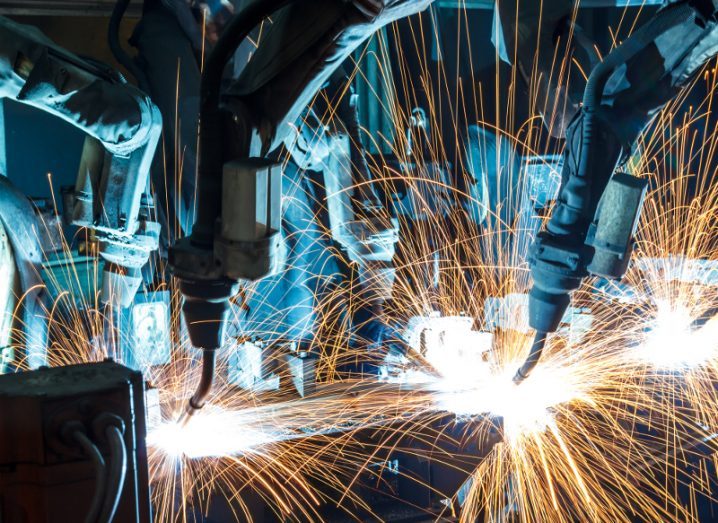By Nicole DiGiose
In an attempt to speed along its creation process, vehicle manufacturer General Motors hooked up one-quarter of its 30,000 robots to the internet. Already, improvements along its production line are quickly becoming obvious.
According to the director of the company’s global automation, Mark Franks, GM avoided 100 potential failures of vehicle-assembling robots by analyzing data that they sent to external servers in the cloud in the past two years. At a conference in Chicago earlier this month, Franks said that connectivity is preventing assembly line interruptions and robot replacements that can take as long as eight hours.

Robots can help manufacturers save a significant amount of time and money. Image source: Shutterstock.
According to Bloomberg, Franks believes that if GM can avoid a disruption in its manufacturing, it can save a significant amount of money. “It’s a pretty good payback,” Franks said. “The amount of technology coming at us in the next five years is probably more than we’ve seen in the last 50.”
The International Federation of Robotics claims that auto companies continue to be the robotics industry’s largest customer. The report reads, “In 2016, automotive factories installed 17,600 robots compared with 5,100 for electronics manufacturers and 1,900 for metal producers.”
By hooking some, or even all, of these robots to the internet, manufacturers can order parts in real time, reducing the inventory and its peripheral needs, such as storage. This all adds up to saved money.
Since 2012, GM has increased its new U.S. robot applications by 10,000 while boosting U.S. employment by about one-third to 105,000, according to a report by the Association for Advancing Automation, which argues that robots help create jobs.
In the years ahead, the push for a driverless future needs a dramatic stream of innovation. Nissan, BMW, and Audi, for example, are pumping resources into this field. They’ve been joined by Airbus, which adds an aeronautical dimension, and Tesla, which is spearheading the electric future.
Eventually, these vehicles will basically be robots hooked up to the internet. So perhaps it makes sense to have robots that are hooked up to the internet build them.
What do you think? Will such robots create or eliminate jobs? Leave a comment below.
Advertisement
Learn more about Electronic Products Magazine





